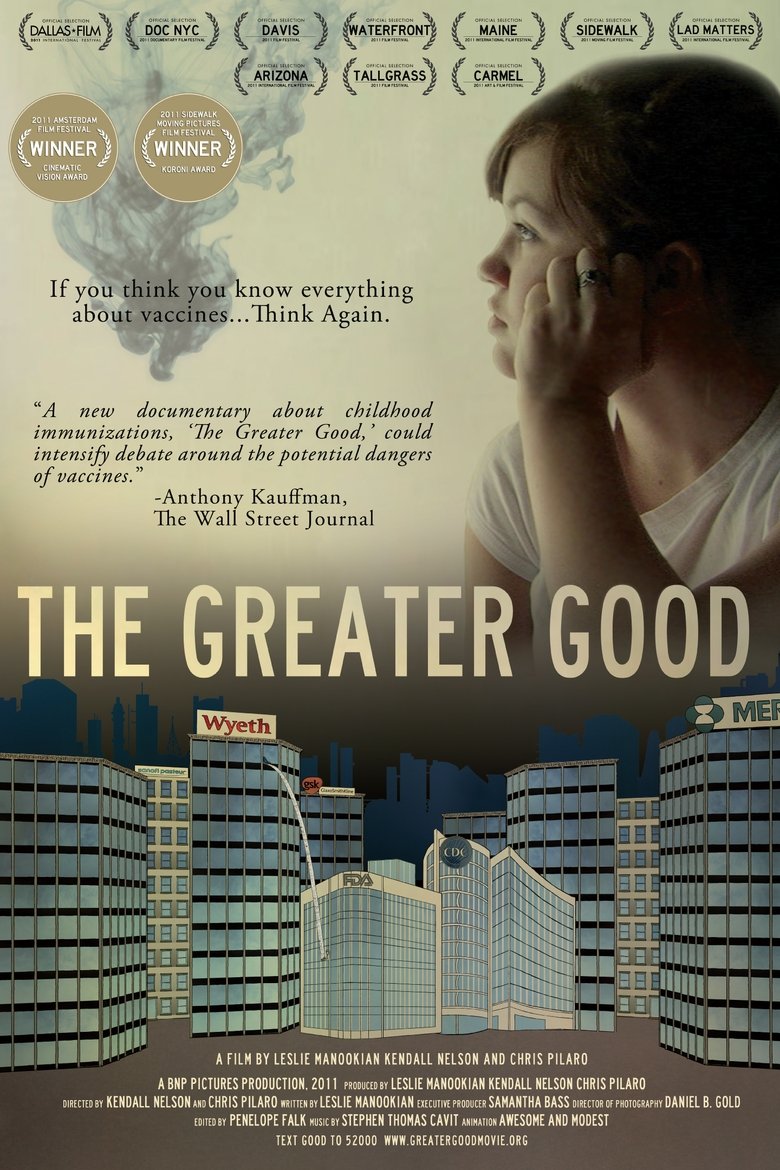A new documentary about childhood immunizations, “The Greater Good,” could intensify debate around the potential dangers of vaccines. The film, which premiered Saturday at the Dallas International Film Festival, aims to create “a rational discussion” about vaccine safety, according to producer and co-director Chris Pilaro, who worked previously as a producer on such Sundance documentaries as “Blue Vinyl” and “Everything’s Cool.”
Pilaro immediately rejects the notion that “The Greater Good” might be labeled “anti-vaccine.” “The media has said that if you ‘question’ [the current status quo] you are anti-vaccine. But all of the doctors, researchers and scientists in our film are pro-vaccine. You should not be considered anti-vaccine to question the safety of any pharmaceutical product.”
Many experts have debunked some of the questions about vaccine safety. Early this year, an article and editorial published in the British Medical Journal said that an influential but now-discredited study that provoked fears around the globe that childhood vaccinations caused autism was based largely on falsified data.
The film includes interviews with strong current vaccine advocates, such as Dr. Paul Offit (Director of the Vaccine Education Center at The Children’s Hospital of Philadelphia), Dr. Norman W. Baylor (Director of the FDA’s Office of Vaccines Research and Review), and Dr. Melinda Wharton (Deputy Director of the National Center for Immunization and Respiratory Diseases).
But their voices are far outnumbered by those calling for further oversight of vaccinations, such as Dr. Bob Sears (author of “The Vaccine Book”), and Barbara Loe Fisher, co-founder and president of the National Vaccine Information Center, as well as families who claim to be victims of vaccine injuries. The film focuses on three such emotional stories: of a teenage girl whose life deteriorated after taking the HPV vaccine; a boy who developed autism subsequent to being vaccinated; and a family whose infant died shortly after being vaccinated.
“We feel we have given voice to a population that isn’t regularly represented in the media,” says Pilaro, defending the choice of subjects. “We also did contact a number of families with children who had been injured by vaccine-preventable diseases, but none of them would film with us.”
“The goal was not to scare people away from vaccinations,” Pilaro continues. “We need to have the ability to ask these hard questions without being shunned.”
“The Greater Good” is currently seeking a deal for broadcast or theatrical distribution. It plays next at the Arizona International Film Festival on April 12.
By Anthony Kaufman
The Wall Street Journal.

